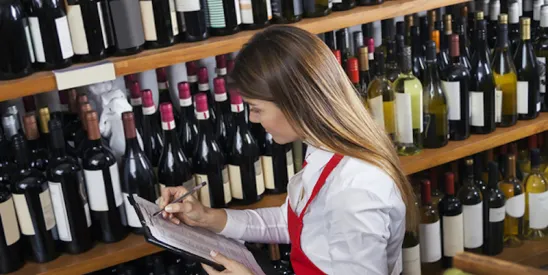Law applies to all new licenses and renewals
Effective August 9, 2024, a new Maine law has streamlined the application process for obtaining a license for the wholesale or retail sale of liquor. This will be especially helpful for any bar or restaurant seeking to obtain an “on-premise liquor license,” which is required by the state in order to sell hard liquor (referred to as “spirits” under Maine law), beer, and wine at the establishment. By raising the threshold for ownership disclosure to 10% or more, this new law should reduce time and expense for investor groups developing hotel and restaurant properties in Maine.
Previously, every ownership interest - no matter how small or remote – had to be disclosed on the license application. For larger investor groups, real estate investment trusts, private equity type funds, and ownership groups with multiple partners, this was extraordinarily burdensome. It is these investors that are the primary developers of new, upscale hotel properties sprouting up in the Greater Portland and Bangor areas, properties whose clientele expect access to bar and restaurant services. The application process had been unusually lengthy, in no small part due to efforts to track down and report all ownership interests at every level of ownership.
Evolution Of Liquor Regulation in Maine
The roots of this provision can be traced directly to Maine’s restrictive approach toward liquor regulation and the seminal figure in that effort, Neal Dow. While serving as Portland’s mayor, Dow successfully lobbied the state legislature to pass what became known nationally as the "Maine Law" in June 1851, long before the passage of the 18th Amendment that began prohibition.
The Maine Law banned all alcohol production and sale except for medicinal purposes, and became a model that state-level temperance activists lobbied to implement across the country. Notably, the Maine Law contained the roots of the modern control state system, allocating power solely to the government to purchase liquor for medicinal use.
After the 21st Amendment repealed prohibition in 1933 and reallocated power to regulate alcohol to states, Maine returned to its original framework of state control. For the past century, the state has maintained substantial authority over the sale and distribution of sprits.
Maine’s Bureau of Alcoholic Beverages and Lottery Operations (BABLO) is the only entity that can bring spirits inside the state’s borders, and it decides which spirits are sold, where they are sold, and the price for which they are sold. Maine and 17 other states with similar laws are referred to as “control states.”
Disclosure of all ownership interests for an on-premise liquor license – or any liquor license - is consistent with this approach. Following the repeal of prohibition, lawmakers sought to prohibit drinking establishments from being supplied exclusively by one liquor producer, in part fearing a return to the alleged drunkenness and lawlessness brought about by establishments known as “tied houses” that were a flashpoint in the temperance movement.
Accordingly, national and state policymakers separated liquor businesses into one of three groups - producers, distributors, or retailers. Commonly known as the "three-tiered system," the regulatory objective was to ensure that no person with an ownership interest in one tier had an ownership interest in any other tier. Some states have since moved away from this approach or rejected it altogether.
Maine has made some modifications over the past century — closing state liquor stores, creating private agency stores, privatizing the spirits contract, and modifying the laws governing craft breweries chief among them — but the fundamental structure of its three-tier system remains intact.
Antiquated Reporting vs. Modern Developments
Recognizing the antiquated nature of the reporting requirement and its inconsistency with modern development of restaurant and hotel properties, BABLO submitted LD 2069 for consideration this past legislative session. As originally proposed, the bill removed the statutory language that every ownership interest had to be disclosed and set a more reasonable minimum threshold of 5%.
The Joint Standing Committee on Veterans and Legal Affairs (VLA), the committee of jurisdiction for all liquor and spirits matters, further reduced the regulatory burden by raising the disclosure threshold to 10%. The amended bill received unanimous support from the full Legislature and was signed by Governor Mills.
Even though this new law simplifies the application for an on-premise liquor license, complicated state and municipal licensing procedures and disclosure requirements still apply. Pierce Atwood attorneys have successfully navigated these challenges before and can assist, irrespective of how many ownership interests are involved.
Miriam DuVall contributed to this article





 />i
/>i
